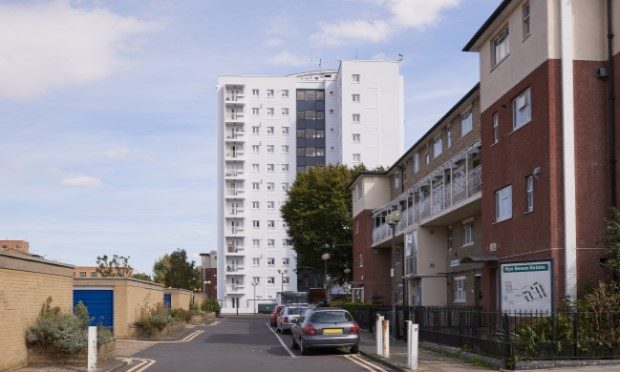Town Hall to begin charging leaseholders for EWS1 fire safety forms

Hackney Council is set to begin charging costly fees for specialist fire safety checks to its leaseholders, after a year of carrying out recently introduced bureaucracy on residents’ behalf left its budgets “under strain”.
Since last December, any mortgage applications for leasehold properties in residential buildings over 18m require an External Wall Fire Review (EWS1) certificate which can cost residents up to £12,000, part of soaring costs faced by leaseholders after building regulations changed in the wake of the Grenfell Tower fire.
The Town Hall last week spoke out in support of the End Our Cladding Scandal campaign, calling on the government to step in to protect leaseholders and shared owners from bearing the brunt of the cost of making dangerous cladding safe.
However, a recently published October report reveals that the council will now introduce a £750 fee for leaseholders who need an EWS1 form to show whether or not their buildings are free of combustible materials.
Thirty-three requests from residents in just a handful of months has left the Town Hall’s resident safety team with a bill of almost £39,000.
A report from the Town Hall’s director of housing services David Padfield reads: “Housing Services is unable to continue to fund the cost associated with this activity, which is putting the Resident Safety team’s budget and in turn the housing revenue account under a strain. With this in mind this report proposes arrangements to recharge leaseholders a share of costs as and when they request an EWS1 certificate.
“The requirement for the provision of EWS1 forms is likely to increase going forward and putting in place a pricing mechanism which ensures the council can continue to carry out these essential surveys is prudent.
“The current arrangement, which does not involve leaseholders being charged a share of costs, cannot be maintained long term. As such this report seeks approval to put arrangements in place for Hackney to recoup costs from recipients of the service – i.e. leaseholders.”
The £750 fee paid by leaseholders for receiving an EWS1 will go towards the costs associated with the council arranging for specialist fire safety engineers to carry out the necessary checks and provide a certificate for each building.
Hackney’s own building control were unwilling to sign off on the 33 requests received between April and August themselves, forcing the Town Hall to engage external providers at a high cost.
The council’s own fire risk assessors are not graduate members of the Fire Institute of Mortgage Companies, according to the report, resulting in an unwillingness to accept their own sign-off, with council building control refusing to sign EWS1 forms even when the Town Hall’s resident safety team have been able to show that the relevant walls are made of brick or concrete.
Despite the new legislation only relating to buildings over 18m, both leaseholders and the council have been confronted by mortgage companies insisting on EWS1 forms for lower blocks, and refusing mortgages if they cannot be provided. Costs for such forms start at just over £2,000, with intrusive surveys jacking up the bill to over £12,000.
Hackney has just under 1,400 blocks which could be subject to a request for an EWS1 form at any time.
According to Padfield’s report, if a building does not pass the checks to receive a certificate, leaseholders will be informed of this without being charged the fee.
The council is understood to have weighed up a number of options when it found that it could not sustain the costs of securing the forms for its leaseholders, including recovering a share of costs from each leaseholder as part of their annual service charges, or fully recovering the building cost from each leaseholder who had requested an EWS1.
A flat fee was considered more fair by the council, with the first option not fair to those without mortgages or with no plans to sell, and the second landing leaseholders in financial difficulties due to the potentially high cost of securing the forms.
An EWS1 certificate is valid for five years, with the Town Hall noting that it could receive several requests from leaseholders in the same building over five years and thus be able to keep using the same valid certificates in response to future requests.
Cllr Clayeon McKenzie, the Town Hall’s cabinet member for housing services, said: “We have made clear that leaseholders should not have to meet the cost of historic fire safety work as a result of changes in building regulations since the Grenfell Tower tragedy, and where we are investing in upgraded insulation on our own buildings we have not passed the cost of this on to leaseholders.
“This is a separate matter to the fee to provide fire safety certificates upon request, which is consistent with other charges for mortgage and property sale enquiries. Although we believe the government urgently needs to address the scope, complexity and expense of these forms, charging for them allows leaseholders to remortgage or sell their flats without the cost of this being subsidised by rents and service charge income from other residents.
“Providing these forms is not a legal requirement and other local authorities have chosen not to do so. As the form requires sign off by a person with specific qualifications, the Council has no choice but to use a contractor to undertake this survey.”
